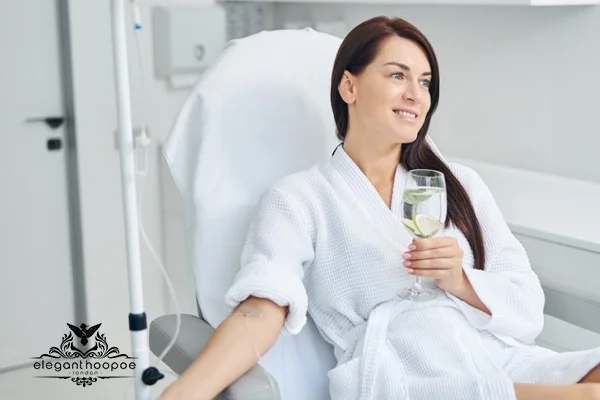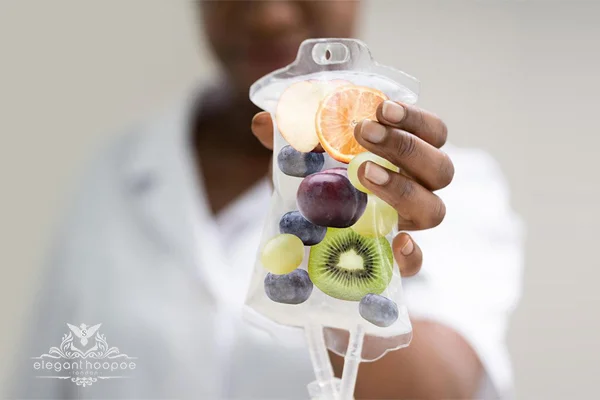What Is IV Infusion Therapy, and How Can It Benefit Your Health?
IV infusion therapy delivers fluids, nutrients, and medications directly into the bloodstream for rapid absorption and effectiveness. It is used for both medical and wellness purposes, including:
Medical Uses: Helps manage chronic illnesses, supports post-surgical recovery, and aids cancer patients during treatment.
Wellness Benefits: Enhances hydration, boosts immunity, and provides hangover relief.
Advantages Over Oral Hydration: Faster absorption, higher bioavailability, and immediate results.
While IV infusion is effective, consulting a qualified provider ensures safety and proper administration.
IV infusion therapy involves delivering fluids, nutrients, or medications directly into the bloodstream for rapid absorption and effectiveness. It is used in both medical settings (e.g., chronic illness management, post-surgical recovery) and wellness contexts (e.g., hydration, immune support). The treatment offers significant advantages over oral hydration, with faster absorption and higher bioavailability. However, it should be administered by a qualified professional to ensure safety.
IV Infusion Therapy: Everything You Need to Know

Intravenous infusion treatment is a form of treatment wherein fluids, medications, vitamins, or other nutrients are introduced into the blood via a vein. The dosage is better and faster absorbed by the body, since it doesn’t have to go through the digestive system. Applications of IV infusion therapy will range from medical uses in the management of chronic conditions and the enhancement of post-surgical recovery to wellness uses in hydration and nutrient support. This session enumerates with details the benefits, how different it is from the other forms of hydration, and the use cases of IV infusion therapy.
What is IV Infusion Therapy?
IV infusion therapy is a method by which fluids, electrolytes, nutrition, or medication is delivered into the vein through a catheter inserted into the arm. This ensures that absorption is quicker and more efficient than when taken orally. The following are the major two forms of IV administration:
- IV Drip: This traditional method delivers fluids gradually, often over 30-60 minutes, allowing for continuous flow into the bloodstream. IV drips are suitable for rehydration, administering antibiotics, or delivering vitamins and minerals in controlled amounts.
- IV Push: Involves injecting a concentrated dose of medication or nutrients directly into the bloodstream within a short period, usually a few minutes. This is used for treatments requiring immediate effects, such as emergency medications.
Read aboutt IV drip therapy and it’s benefits!
Use Cases for IV Infusion Therapy

The applications of IV infusion therapy are broad, encompassing treatments for both acute medical needs and general wellness enhancement.
Medical Applications
- Chronic Illness Management: Due to chronic conditions, such as Crohn’s disease, celiac disease, or any other gastrointestinal disease, nutrient intake from food may be less than optimal. IV therapy could very well improve nutrient uptake by providing needed vitamins, minerals, and medicines right into the bloodstream, thus helping to decrease symptoms related to fatigue or anemia.
- Post-Surgical Recovery: Post-surgery, a number of issues persist amongst patients, like dehydration, malnutrition, and weakened immunity. This could be corrected with IV infusion therapy through hydration electrolytes and nutrition to help repair tissues, faster healing and reduce post-surgery pain with proper medication administration.
- Cancer Treatment Support: Cancer patients undergoing chemotherapy may experience dehydration, nutrient deficiencies, or side effects that can be managed with IV infusions, which can replenish fluids, and vitamins (like B12 and C), and provide anti-nausea medications.
If you are looking for an IV therapy clininc in Dubai, Elegant Hoopoe is the best choice.
Wellness Applications
Hydration Therapy: Hydration IV infusions are best for athletes or people who go through very strenuous activities. They will replace fluids and electrolytes lost through your sweat fast. They will also improve athletic performance and decrease the time of recovery.
- Hangover Relief: In cases of dehydration, nausea, or headache after excessive intake of alcohol, IV infusions immediately help in rehydrating the body, relieving symptoms, and rebalancing with anti-nausea medication, pain relievers, and vitamin infusions.
- Immune Boost Therapy: IV infusions of immune-boosting vitamins, such as vitamin C, zinc, and B-complex vitamins during flu season or periods of increased illness risk, can help fortify your immune system against the chances of falling sick.
| Aspect | IV Infusion Therapy | Oral Hydration |
| Absorption Speed | Rapid absorption directly into the bloodstream | Slower absorption through the digestive system |
| Bioavailability | High; nutrients fully absorbed | Lower; nutrients may be lost in digestion |
| Effectiveness for Severe Cases | Excellent for severe dehydration or deficiencies | Less effective for severe cases |
| Use in Medical Emergencies | Commonly used | Not suitable for emergencies |
| Ease of Use | Requires a healthcare professional | Self-administered |
Intravenous Infusion

The very word “intravenous” means the administration of substances through veins. The term emphasizes the direct introduction into the circulatory system of fluids or therapeutic substances while completely bypassing the digestive system. In such a way, the administered substances will be more quickly absorbed and thus immediately available in the organism, something so crucial in emergency medical care during surgeries, or when treatments must be given with highly precise dosage control. Intravenous infusions are used very often in blood transfusions, delivery of antibiotics, and chemotherapy drug administration.
IV Infusion
Infusion is a general term describing any treatment that involves the delivery of medications, fluids, or nutrients into the bloodstream. These include various other forms apart from fluids, such as antibiotics, chemotherapy drugs, pain management solutions, and more specialized infusions like biologics for autoimmune diseases. The reasons for infusion therapy can include everything from acute illnesses and chronic disease management to palliative care. It is an important method when medication by mouth cannot work or is unfit for use.

IV Fluid Infusion
Intravenous fluid infusion includes administering IV fluids for hydration, maintaining electrolytes, and nutritional fluids into the circulatory system. These may include saline for hydration, dextrose for energy, or a balanced solution of electrolytes that replace vital minerals lost due to serious dehydration or electrolyte imbalance. The infusion of IV fluid is widely utilized in patients who are unable to orally hydrate due to a variety of illnesses, surgical conditions, or disorders.
IV Fluid Meaning
The term “IV fluid” describes the many different fluid solutions available for use in intravenous treatments. They are often sterile, well-rounded liquids that can be simply water, or they may also include a combination of water, electrolytes, sugars, or medications that serve to replace hydration, stabilize blood pressure, or carry energy and nutrients to the body.
Examples of common IV fluids include normal saline, lactated Ringer’s solution, and glucose solutions. A differentiation in types and purpose stands to be instructive in the course of treatment in both medical and wellness contexts of IV fluids.
Considerations for IV Infusion Therapy

While IV infusion therapy can be highly beneficial, there are important factors to consider before opting for this treatment:
- Consult with a Healthcare Professional: It is crucial to speak with a licensed healthcare provider before undergoing IV therapy to ensure it is safe and appropriate for your health condition.
- Know the Risks: While IV infusions are generally safe, potential risks include infections, vein irritation, allergic reactions, or fluid overload.
- Select a Qualified Provider: Always choose a reputable clinic or healthcare facility that follows proper safety protocols to reduce the risks associated with IV infusions.
Related article: At-home IV hydration
Final Thoughts
IV infusion therapy is one of the strongest and most versatile therapies for addressing medical and wellness needs. It boasts a unique advantage in administering the necessary fluids, nutrients, and medications directly into the blood, which affords quicker absorption and heightened effectiveness compared to oral delivery. As previously mentioned, IV infusion is not restricted to the ambit of a hospital; it finds its place in wellness centers, too, for hydration purposes, boosting the immune system, and recovery from various conditions.
That it is effective for treatment in cases of chronic illness, post-surgery recovery, and even common cases such as dehydration makes it worth considering for many people. But while the advantages are remarkable, there’s much caution to take when approaching IV infusion therapy. This would include consulting a healthcare provider in advance to make sure the treatment fits into the individual health conditions and selecting a reputable clinic to lessen any possible risk.
With proper guidance, IV infusion therapy can be a safe and efficient solution to meet a wide range of health needs, from managing serious medical conditions to maintaining general well-being. Whether you seek rapid hydration, nutrient replenishment, or recovery support, IV infusion therapy could be an ideal choice for improving health and vitality. To explore this further, visit our website at Elegant Hoopoe and consider scheduling a session at our branches in Dubai, Jumeirah, or Abu Dhabi, where specialized IV services are available to help you achieve your health goals.






